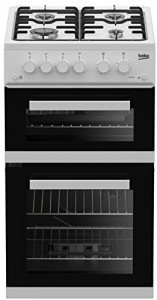A Comprehensive Guide to Buying a Gas Burner
Gas burners have ended up being important gadgets for cooking both in the house and in professional kitchen areas. Their performance, control, and adaptability make them a popular choice amongst chefs and home cooks alike. If you are thinking about acquiring a burner, it's crucial to understand the different types available and the elements to consider throughout the buying procedure. This article aims to provide in-depth insights into burner, attending to everything from their advantages to regularly asked concerns.
Tabulation
- Understanding Gas Burners
- Types of Gas Burners
- Benefits of Using a Gas Burner
- Aspects to Consider When Buying a Gas Burner
- Frequently Asked Questions (FAQs)
- Conclusion
Understanding Gas Burners
A burner is a device that utilizes a gas fuel source-- typically gas or gas-- to produce a flame for cooking purposes. It is a crucial component in gas stoves, camp ranges, and outside grills. The design of a burner typically consists of a gas inlet, a mixing chamber, and a flame outlet. When gas flows through the burner and blends with air, it produces a combustible mix that sparks, producing heat and light.
Kinds Of Gas Burners
Burner can be found in various sizes and shapes, designed to meet different cooking requirements. Here are some typical types:
1. Single Burner
- Suitable for little kitchens or restricted cooking requirements.
- Portable and simple to store.
2. Double Burner
- Offers more cooking surfaces for larger meals.
- Great for multitasking while preparing meals.
3. Triple Burner
- In some cases discovered in professional settings.
- Offers versatility and performance for serious cooks.
4. Portable Gas Burners
- Developed for outdoor activities such as outdoor camping or picnics.
- Lightweight and fueled by little propane canisters.
5. Built-in Gas Burners
- Integrated into kitchen counter tops for a smooth appearance.
- Frequently feature advanced innovations for precise heat control.
| Type of Gas Burner | Perfect Use | Mobility |
|---|---|---|
| Single Burner | Single or small meals | High |
| Double Burner | Family meals, multitasking | Moderate |
| Triple Burner | Expert use, large meals | Low |
| Portable Gas Burner | Outdoor cooking, outdoor camping | Really High |
| Built-in Gas Burners | Designed for modern kitchens | None |
Benefits of Using a Gas Burner
Burner provide numerous advantages over electrical cooktops:
- Instant Heat Control: Gas burners supply instant heat modifications. Turning the knob leads to immediate modifications in flame strength, permitting better heat management.
- Versatility: Whether searing meat, simmering sauces, or toasting spices, burner can assist in various cooking approaches.
- Cost-Effectiveness: In numerous areas, gas is less costly than electrical energy, making burner a more affordable option for long-lasting usage.
- Reliability During Outages: Gas burners will operate throughout power interruptions, offered there is a gas supply available.
Factors to Consider When Buying a Gas Burner
When selecting a gas burner, several elements should be taken into account:
1. Fuel Type
- Natural gas or gas? Consider what kind of gas is offered in your location and whether you require adapters for both.
2. Size and Space
- Assess your kitchen size. More inspiring ideas that the burner fits easily in your cooking area without overcrowding.
3. BTU Rating
- Search for burners with greater BTU (British Thermal Units) ratings for much better heat output, especially if you cook often or require high heat for certain dishes.
4. Product and Build Quality
- Consider the products (stainless-steel, cast iron, and so on) that add to durability and ease of cleaning.
5. Safety Features
- Features such as flame failure devices and automatic turn-off are vital for safe operation.
6. Cost and Warranty
- Set a budget but think about purchasing top quality brands. Search for guarantee options to safeguard your purchase.
7. User Reviews
- Research study customer feedback for performance, reliability, and adaptability.
Frequently Asked Questions (FAQs)
How do I install a gas burner?
- Setup must be performed by a certified expert to ensure safety and compliance with local codes.
What is the typical cost of a gas burner?
- Prices can differ substantially based upon type and brand, varying from ₤ 30 for portable burners to over ₤ 1,000 for high-end built-in models.
How do I maintain my gas burner?
- Frequently tidy the burner grate and guarantee gas connections are leak-free. Regular professional assessments are advised.
Is it safe to use a burner inside?
- Yes, offered the location is well-ventilated, and safety features remain in location to prevent gas leaks and ensure proper combustion.
Can I transform my electrical stove to a gas burner?
- Yes, with proper modifications and connections to a gas supply. Speak with an expert for the conversion process.
Exist environment-friendly options in burner?
- Some models are developed to utilize biogas or are more energy-efficient. Research study brands focused on sustainability.
Acquiring a gas burner can significantly boost your cooking experience, providing flexibility and reliable heat control. Understanding the numerous types, advantages, and aspects affecting your choice is important for making an informed decision. Whether for an outdoor adventure or everyday cooking in your kitchen, discovering the best gas burner to meet your needs is vital. With the ideal research study and preparation, you can take pleasure in the many benefits that gas cooking needs to provide.

